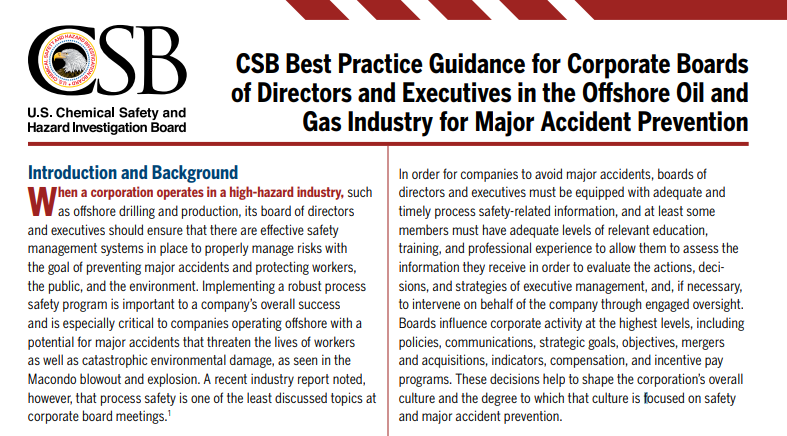A recent industry report noted, however, that process safety is one of the least discussed topics at corporate board meetings. Major accidents can interfere with drilling and production operations, damage a company’s reputation, and cause significant financial distress. The Center for Chemical Process Safety (CCPS) notes in The Business Case for Process Safety that implementing an effective process safety program provides for enhanced risk reduction at a company, which has the following benefits:
• Lives are saved and injuries are reduced
• Property damage costs are reduced
• Business interruptions are reduced
• Loss of market share is reduced
• Litigation costs are reduced
• Incident investigation costs are reduced
• Regulatory penalties are reduced; and
• Regulatory attention is reduced
In order for companies to avoid major accidents, boards of directors and executives must be equipped with adequate and timely process safety-related information, and at least some members must have adequate levels of relevant education, training, and professional experience to allow them to assess the
information they receive in order to evaluate the actions, decisions, and strategies of executive management, and, if necessary, to intervene on behalf of the company through engaged oversight. Boards influence corporate activity at the highest levels, including policies, communications, strategic goals, objectives, mergers and acquisitions, indicators, compensation, and incentive pay programs. These decisions help to shape the corporation’s overall culture and the degree to which that culture is focused on safety and major accident prevention.
You can download full article at this link.

